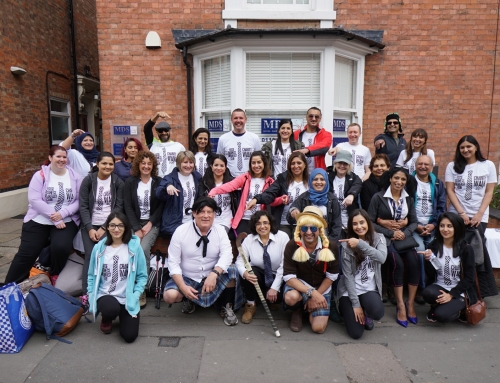Ranjit Thaliwal, a specialist mental health lawyer, sheds some light on the important issue of mental health, ahead of World Mental Day.
As World Mental Health Day approaches Mental Health will get a welcome spotlight in terms of coverage via TV, press and radio which is more than welcome as often it is a ‘Cinderella area’, as it does not get mainstream publicity although this has been changing in recent years.
Mainstream views can often be uncertain, misinformed, wary and lacking empathy regarding those who encounter and live with ongoing Mental Health difficulties.
Representing those detained under Section means that we see individuals at the most difficult time where they are being detained by force, on a psychiatric unit and often with no leave off of the ward. They can be brought into hospital on an emergency basis sometimes with little by way of possessions and so the whole process can be very upsetting and difficult for them. The individuals we represent can be those detained for the first time or ‘revolving door patients’ who have had multiple admissions going back for over a decade or two.
There is no doubt that the issue of support mechanisms when people are in the community remain critical as the layers of support through family, friends, professional groups and organisations can be the glue that keeps individuals well enough to sustain themselves in the community, particularly getting over periods where there is high levels of stress and mental illness is at the most prominent juncture.
One the great positives about World Mental Health Day is that the spotlight that it creates leads to a number of events being organised by national and regional support groups who provide invaluable support in the Mental Health Law area. Organisations like MIND, The Samaritans and smaller localised support groups continues to do some outstanding work in this area making a huge difference to people encountering and getting through their Mental Health issues and challenges.
Ultimately it is an opportunity to attend and get involved in events which recognise the importance of Mental Health problems and the need for multi-layered support for those coming through those difficulties.
Recent figures indicate that there were 6708 suicides in the UK and Ireland (Source: suicide statistics report 2015 – Samaritans). The figure indeed is significant and does not take into account those who attempt to take their lives and are unsuccessful.
The statistical information regarding Mental Health is clearly available extensively but one of the most stunning figures which has come forward indicates that within the male age group of twenty to forty-nine, the biggest killer of men is not road traffic accidents, Cancer or Coronary Heart Disease, but in fact is suicide. This is clearly a jaw dropping statistic and puts matters into context, showing how Mental Health Issues can have such a devastating and huge impact on individuals and their families.
Mental Health is clouded in confusion and misinformation and here are examples of the myths which often are relayed. The Time to Change campaign has updated on the following myths and facts:
MYTH: Mental Health problems are very rare.
FACT: One in four people experience Mental Health problems in any given year.
MYTH: People with Mental Health problems are not able to work.
FACT: We probably all work with someone experiencing a Mental Health problem.
MYTH: Young people just go through ups and downs as part of puberty. It is nothing!
FACT: One in ten young people experience a Mental Health problem.
MYTH: People with Mental Health illnesses are usually violence and unpredictable.
FACT: People with Mental Health illnesses are more likely to be the victim of violence.
MYTH: People with Mental Health problems do not face discrimination.
FACT: Nine out of ten people with Mental Health problems experience stigma and discrimination.
MYTH: It is easy for young people to talk to friends about their feelings.
FACT: Nearly three out of four young people fear the reactions of their friends when they talk about Mental Health problems.
Regarding the above Mental Health myths, it is really important that a mainstream understanding is built and awareness is raised. This will help the general population to understand the full story behind those who encounter and suffer with Mental Health problems. This awareness brings with it understanding and hopefully a better ability to help those who are in need.
There is clearly a great deal if misinformation and ignorance surround Mental Health issues generally.
Again here, building knowledge and awareness helps to break down the barriers of stigma and prejudice which remain critical. Individuals who have encountered Mental Health problems will need to re-assimilate back into daily life, returning to work, education and a family life etc. Here support and understanding is vital.
In conclusion, it is excellent to have World Mental Health Day to spotlight and bring a focus to this very important area. Hopefully we can all get involved in so many different ways including supporting a Mental Health organisation, helping those who we know are encountering Mental Health difficulties and providing support in this crucial area in any way that we can. The area of Mental Health remains fundamentally important and with a unified effort together we can all make a difference to those encountering Mental Health issues.
Support is the key and hopefully you can play your part in such an important issue.
Ranjit Thaliwal
Thaliwal & Co Solicitors

